 January 28, 2016 John E. Ross, KD8IDJ, Editor
| ||||||||
Tom Gallagher, NY2RF, Will Succeed David Sumner, K1ZZ, as ARRL CEO Tom Gallagher, NY2RF, of West Palm Beach, Florida, will succeed David Sumner, K1ZZ, as the chief executive officer of ARRL, effective April 18. In that role, he will oversee all activities at ARRL Headquarters in Newington, Connecticut. Meeting in a special webinar session on January 25, all 15 ARRL Directors voted to elect Gallagher as CEO and Secretary, positions that Sumner will relinquish on April 18. Gallagher will join the ARRL staff as CEO-Elect on February 29, and a transition period will follow.
"I am excited by the prospects of ARRL's Second Century, but I am equally mindful of Dave Sumner's enormous 4-decade contribution to our organization and of the extraordinary contributions he has made to advancing the art and science of Amateur Radio, to growing our ranks, and to expanding the sheer enjoyment of ham radio around the world," Gallagher said. "We need to focus on those parts of the population that are not participating in what Amateur Radio has to offer as an avocation, as well as the ones that are." Gallagher said he is looking forward to attending the ARRL 2016 National Convention, hosted by the Orlando HamCation, February 12-14. Licensed in Pennsylvania in 1966 as WA3GRF (and later N4GRF in North Carolina), Gallagher is a member of the West Palm Beach Amateur Radio Group. He describes himself as "an incurable HF DXer and inveterate tinkerer." He credits his first visit to The Franklin Institute's Amateur Radio station, W3TKQ, in 1963 for inspiring his interest in ham radio. Amateur Radio led to an early career in broadcasting. He was a cameraman and technician with WGBH-TV in Boston, the CBS Television Network, and Metromedia's WIP Radio in Philadelphia. He joins ARRL following 3 decades as an international investment banker and financial services executive. His career has included senior leadership positions with JP Morgan Chase & Co and CIBC Oppenheimer & Co in New York, and with Wachovia Capital Markets in Gallagher graduated magna cum laude with a BA from the University of Pennsylvania, and he holds an MBA from The Wharton School. He is a graduate of The Lawrenceville School, where he held the Nicholas Noyes scholarship. In addition to ham radio, Gallagher enjoys saltwater fishing and sailing which, he confesses, is sometimes just an excuse to operate maritime mobile. Gallagher and his wife Lindy Allyn divide their time between West Palm Beach, Florida, and Manhattan. They have three sons. He plans to return to Connecticut, where he had lived previously for 13 years in New Canaan. Read more. Hams Turn Out to Help as Massive Snowfall Stuns Several States Amateur Radio Emergency Service (ARES) and SKYWARN volunteers were at the ready as a storm of historic proportions over the January 23-24 weekend dropped up to 3 1/2 feet of snow, some of it on states not used to seeing much snow at all. Utility line icing caused power outages in some states, and flooding occurred along coastal areas. While the storm bypassed Northern New England, it brought major East Coast cities to their knees, and some 30 deaths were blamed on the severe weather. Federal offices in Washington, DC, including FCC Headquarters, were closed for 2 days. New York City Area ARRL NYC/Long Island Section Manager Jim Mezey, W2KFV, reported approximately 2 feet of snow with some local flooding in his Section. ARES members were active in ARES and SKYWARN nets on local repeaters, and 40 meters was used to transmit weather information using digital modes.
The Southeast The Appalachian Region may have been the hardest hit, with more than 40 inches of snow reported in parts of West Virginia, where a state of emergency was declared. Kanawha County ARES activated nets on 75, 40, and 2 meters. "We were lucky," said ARRL West Virginia SM Phillip Groves, N8SFO. "Lots of snow -- 24 inches in Beckley, a few power outages around the state. We had several ARES/RACES nets on standby, and a lot of hams with nothing to do but talk on the radio." A state of emergency also was declared in Kentucky, not typically known for snow emergencies, after several counties received a foot or more of snow, stranding thousands of motorists along a stretch of Interstate 75. Kentucky Public Information Officer Greg Lamb, W0QI, said the Kentucky Emergency HF Net activated on 75 meters, with stations checking in from throughout the Commonwealth. Hazard and Harlan County-area repeaters activated a SKYWARN net that remained active until after the storm had passed. Amateur Radio volunteers provided 67 storm-related reports to the NWS Jackson office. Some area repeaters were down as a result of the storm.
In Virginia, NWS Wakefield SKYWARN Amateur Radio Coordinator Steve Crow, KG4PEQ, said the Wakefield SKYWARN Amateur Radio Team was active from Friday morning through Saturday evening, with brief wrap-up nets to take total snowfall reports on Sunday. "While the SKYWARN Radio Desk at NWS Wakefield (WX4AKQ) was not activated, we ran local nets in four of our regions impacted by the storm," Crow told ARRL. "Participation exceeded expectations, with 13 SKYWARN net controls taking 274 reports from 109 different spotters." In Stafford County, about a dozen ham radio volunteers deployed to support communication for the county emergency manager, but no emergency developed there. In North Carolina, the storm brought snow and downed utility lines, leaving some 200,000 without power at the peak, but causing no communication outages, ARES SEC Tom Brown, N4TAB, reported. "A few shelters were opened, but were subsequently closed due to minimal need," he said. Middle Atlantic Delaware, which typically experiences fairly mild winters, was not spared this time. "While some areas of Delaware received up to 17 inches of snow, public service, wireless, and telephone services were operational throughout," ARRL Delaware SM Bill Duveneck, KB3KYH, said. "This made for a very routine and uneventful ARES activation...just the kind we always hope for." Amateur Radio volunteers in The First State began preparing for the storm the day before it started, firing up a "Ready Net" in Sussex County, providing weather forecasts and potential served-agency assignments. The next morning, ARES initiated spot reporting to the county emergency operations center (EOC), staffed by Sussex County RACES. The ARES Storm Net opened at noon, and stayed up into the evening. Duveneck said 34 volunteers participated in the net, reporting weather, downed wires, and traffic accidents. Other ARES volunteers staffed a shelter at a Georgetown high school, and ARES remained on standby to assist South Delaware hospitals and the Delaware State Police. SKYWARN nets were reported active in New Jersey's southern Ocean County. Southern New England In Connecticut, Section Emergency Coordinator Wayne Gronlund, N1CLV, summed it up this way: "Our first significant winter storm has passed with surprisingly few power disruptions!"
In Massachusetts, the NWS Taunton office's SKYWARN station WX1BOX activated for 16 hours over the weekend to gather reports on the blizzard's effects over its coverage area. The storm largely affected the area south of Boston toward southeastern Massachusetts -- especially Cape Cod and the Islands, south-central Rhode Island, and south-central Connecticut. WX1BOX handled several hundred snowfall reports, as well as reports of damage due to high winds and the heavy, wet snow, and of coastal flooding. "Compared to last year, this storm did not impact our Section as badly as it could have, but there were still reports of significant snowfall, as well as some coastal flooding and pockets of tree and wire damage and power outages," said Eastern Massachusetts ARES Assistant Section Emergency Coordinator Rob Macedo, KD1CY. "SKYWARN Net reports were invaluable." SKYWARN nets also were active in southeastern Connecticut. Nantucket ARES was on standby to support shelter operations on the island, as power outages mounted, but power was restored quickly enough to avert the need for opening a shelter. Read more. ARES Volunteers Support Major Flood Responses Amateur Radio operators put their skills to work during flooding in the Centralia area of Southwest Washington and during historic flooding in the Greater St Louis, Missouri, area in December and January. In Missour,i ARES® volunteers from three counties pitched in. Bill Grimsbo, N0PNP, Missouri District C Emergency Coordinator, said Amateur Radio volunteers worked with responding agencies.
Prolonged rain occurred December 26-28, with the heaviest rainfall in a 50- to 75-mile wide swath from Southwest Missouri through the St Louis Metropolitan area and into Central Illinois. The total 6 to 12 inches of rainfall led to life-threatening flash flooding and historic river flooding, capping off the wettest year on record for St Louis at 61.24 inches. More than 2 dozen radio amateurs from St Louis Metro ARES, St Charles County ARES, Illinois Section ARES, and St Louis and suburban radio club members worked with the American Red Cross in serving some 19,400 meals and coordinating more than 640 overnight stays for those displaced by flooding. ARES and club operators were asked to help coordinate communications among shelters in four counties and Red Cross headquarters. On average, volunteers worked 6 to 8 hour shifts, employing repeaters maintained by area radio clubs. St Charles County Division of Emergency Management also called on ARES to conduct road closure reconnaissance for emergency services. Volunteers also performed "windshield" damage assessments, where they drove by hundreds of homes, surveying for damage. St Francois and Ste Genevieve County ARES worked together to assist Ste Genevieve County emergency managers with 24-hour walks to assess the condition of the critical levees that protect lives and property in that county. More than 20 people died in the historic flooding. Hundreds were displaced from their homes as rivers, streams, and lakes overflowed banks and levees.
In the Pacific Northwest, the Centralia area of Southwest Washington again found itself on Mother Nature's target list for December rain and local flooding, and Amateur Radio volunteers were called in to help. The region saw nearly continuous rain during the first week in December, with especially heavy rainfall on December 7. As a result, three major rivers -- the Chehalis, the Skookumchuck, and the Newaukum -- quickly reached flood stage. The Centralia ARES team activated on a 24-hour basis on December 8, monitoring EOC Amateur Radio systems and helping to set up the remainder of the EOC for a full-scale response. On December 9, two local creeks -- China and Salzer -- overflowed their banks and inundated Centralia's downtown district, before the major rivers had reached flood stage. ARES team members began a second response phase, performing "windshield" surveys to determine the extent and depth of water in each residential area. Team members also monitored selected high-water points to provide "eyes-on-the-scene" observations of how rapidly flood waters were rising. Throughout the day, hams reported conditions -- block by block, response area by response area -- to the EOC and incident commanders. By late on December 8, even though rivers were still reaching flood stage, emergency managers could breathe a sigh of relief, as it became clear that the local flooding was not going to be on the order of an earlier disaster that closed Interstate 5 for several days. Several dangerous landslides did occur, though, and a stretch of Highway 12 was closed due to washouts. The ARES team deployed 75 members. Read more. -- Thanks to Janelle Haible, N0MTI, St Louis (Missouri) Metro ARES Public Information Officer, and to Bob Willey, KD7OWN, Emergency Coordinator, Centralia Amateur Radio Emergency Service Congressman Intercedes with FCC Chairman on Amateur Radio Interference Concerns New York Congressman Peter King has asked FCC Chairman Tom Wheeler to put some Enforcement Bureau heat on those interfering with various radio communication services, including Amateur Radio, in the New York City Metropolitan Area. While visiting Capitol Hill recently to promote the Amateur Radio Parity Act, ARRL Hudson Division Director Mike Lisenco, N2YBB, and General Counsel Chris Imlay, W3KD, met with King, a Republican representing New York's 2nd District, to discuss the interference issue. King is among the original of the 118 cosponsors of the Amateur Radio Parity Act (H.R. 1301) in the US House. "Rep King, a long-time supporter of Amateur Radio who is also very concerned about malicious interference with licensed services, offered to send a letter to FCC Chairman Tom Wheeler on our behalf," Lisenco said. "Like many areas of the country, the Hudson Division has been plagued with malicious interference on our VHF and UHF repeaters for years. There has been no relief from the FCC, despite repeated pleas for remedy made by ARRL. All requests for help have consistently fallen on deaf ears."
In his January 15 letter to Wheeler, King pointed out that while multiple perpetrators have been involved, the identity of the "ringleader" is well known to the Enforcement Bureau. He reiterated that the malicious interference had "been allowed to continue for too long," and he called for "timely and visible enforcement" to deter others. "The Amateur Radio repeaters on Long Island that are rendered useless by this individual are used for emergency preparedness exercises and were used extensively in Hurricane Sandy disaster relief efforts," King told Wheeler. "This individual has been allowed to proceed without any apparent Commission enforcement for well over 2 years, despite repeated complaints from ARRL, NBC engineering staff, and at least two Long Island Amateur Radio clubs. NBC remote pickup units and public safety radio systems also have been troubled by malicious interference. King said he realizes that FCC Enforcement Bureau resources are limited and that he appreciates the attention the Commission has paid to such issues as pirate radio investigations, but he asked for a tougher stance. "[D]eliberate interference with public safety, broadcast program production, and Amateur Radio public service communications...must be swiftly and visibly addressed," King concluded. Read more. Former Colorado Section Manager Appointed as Rocky Mountain Division Vice Director ARRL President Rick Roderick, K5UR, has named a new Rocky Mountain Division Vice Director. Former Colorado Section Manager Jeff Ryan, K0RM, will succeed Dwayne Allen, WY7FD, who assumed the position of Rocky Mountain Director after former Director Brian Mileshosky, N5ZGT, was elected as ARRL Second Vice President at the ARRL Board of Directors meeting January 15-16. Ryan, 61, lives in Westminster, Colorado, and is an ARRL Life Member. He served in Colorado's top ARRL Field Organization elected office from 2001 until 2011, when he decided not to run for another term. Allen announced Ryan's appointment over the weekend at the Winterfest in Colorado.
"Needless to say, Jeff brings great experience to the table, and I'm very excited to have him join the Division leadership team," Allen said in a message to the Rocky Mountain Division. Ryan has also served as an Assistant SM in Colorado. He is president and director of Rocky Mountain Ham Radio, and director and co-chair of HamCon Colorado -- the Rocky Mountain Division Convention. He's also served as director and vice chair of the Colorado Council of Amateur Radio Clubs. President Roderick has not yet filled a vacancy in the Dakota Division Vice Director's chair. Vice Director Kent Olson, KA0LDG, became the Division's Director after former Director Greg Widin, K0GW, was elected by the Board of Directors as First Vice President. An announcement is expected soon. National Parks on the Air Update
It's going to be a busy week for NPOTA, with Activations scheduled for January 28-February 3, including Shiloh National Military Park (MP08), and Point Reyes National Seashore (SS10). Details about these and other activations coming up can be found on the NPOTA Activations calendar. Love NPOTA? Join the ARRL NPOTA Facebook group! A VHF Contest in January -- How Cool is That? If El Niño has your weather upside down, perhaps the ARRL January VHF Contest will get you right side up and back in a contesting mood! This annual event begins at 1900 UTC on Saturday, January 30, and it wraps up at 0359 UTC on Monday, February 1. The object is for amateurs in the US and Canada (and possessions) to work as many stations in as many different Maidenhead grid squares as possible using frequencies above 50 MHz. It's the US and Canada (and possessions) working each other and the rest of the world (think F2 propagation!).
"Assuming Mother Nature cooperates, the January VHF Contest offers a welcome reprieve from what might be the long winter doldrums," said new ARRL Contest Branch Manager Bart Jahnke, W9JJ. Whether from home, portable, or even as a rover, he said, the event offers something for everyone, including FM-only operators. Jahnke said a good mix of propagation typically manifests in January, and, while tropo may be less of a factor, aurora can provide a boost for northern tier stations. "Meteor scatter and EME (moonbounce) folks will be looking for newcomers as well as the seasoned crowd to join in this more-challenging fun," he added. Contact the ARRL Contest Branch for more information. Read more. Severe Weather Curtails VP8STI South Sandwich Operation; Team Heads to South Georgia It's been a tense time for the Intrepid-DX Group's VP8 DXpedition team on South Sandwich, which had been operating as VP8STI. A fierce South Atlantic storm bearing 70 MPH winds and dropping 2 to 3 feet of snow slammed the VP8STI encampment, threatening to shut down the operation.
Not long afterward, though, a storm-related emergency forced the VP8STI team to abandon its equipment and belongings and return to their transport vessel, the R/V Braveheart. Chief Pilot Toni Gonzalez, EA5RM, said the Braveheart's skipper, Nigel Jolly, declared an emergency on January 25 at 2120 UTC, ordering the VP8STI team to cease all operations and come back to the ship. According to Gonzalez, a large ice floe that broke away due to the storm threatened to block the entrance to the bay where the team had camped, raising the possibility that the ship might not have been able to retrieve the operators. While the emergency effectively ended the VP8STI phase of the two-pronged DXpedition, the team was able to return to camp on January 26 to retrieve its gear and equipment. Gonzalez said on January 27 that the team expects to be on as VP8SGI from South Georgia by the afternoon of January 29 and will attempt to operate from there for 8 days. VP8STI generated hectic pileups, logging more than 51,600 contacts, with more remaining to be uploaded once the team reaches South Georgia. -- Thanks to The Daily DX In Brief...
The K7RA Solar Update Tad Cook, K7RA, Seattle, reports: Solar activity increased January 21-27 compared to the previous 7 days. Average daily sunspot numbers increased from 46 to 57.3; average daily solar flux went from 100.7 to 106. Geomagnetic indices were also higher, with planetary A index going from 9 to 11.6.
Predicted planetary A index is 12, 10, 8, and 5 on January 28-31; 8, 15, 12, and 8 on February 1-4; 5 on February 5-6; 12 on February 7-8; 10 on February 9; 8 on February 10; 5 on February 11-16, and 10, 15, 10, 12, and 15 on February 17-21. Sunspot numbers for January 21 through 27 were 56, 50, 54, 47, 58, 61, and 75, with a mean of 46. The 10.7 centimeter flux was 104, 100.5, 98.9, 103.8, 107.6, 114.8, and 112.7, with a mean of 100.7. Estimated planetary A indices were 32, 14, 12, 11, 3, 4, and 5, with a mean of 9. Estimated mid-latitude A indices were 15, 10, 10, 9, 3, 3, and 3, with a mean of 7.6. Send me your reports and observations.
. . . . . .
Just Ahead in Radiosport
See the ARRL Contest Calendar for more information. For in-depth reporting on Amateur Radio contesting, subscribe to The ARRL Contest Update via your ARRL member profile e-mail preferences. Upcoming ARRL Section, State, and Division Conventions and Events
Find conventions and hamfests in your area.
. . .
Subscribe to...
Free of charge to ARRL members...
| ||||||||

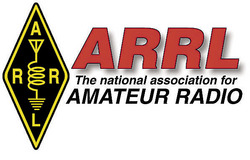 Charlotte, North Carolina. He has also served as an adjunct professor at the Walsh School of Foreign Service at Georgetown University and as CEO of the Secondary School Admission Test Board in Princeton, New Jersey. Gallagher has served on boards, both public and non-profit, including the boards of two NYSE companies, the NPR affiliate in Charlotte, the Executive Board of The Penn Fund at the University of Pennsylvania, and The International Center of Photography.
Charlotte, North Carolina. He has also served as an adjunct professor at the Walsh School of Foreign Service at Georgetown University and as CEO of the Secondary School Admission Test Board in Princeton, New Jersey. Gallagher has served on boards, both public and non-profit, including the boards of two NYSE companies, the NPR affiliate in Charlotte, the Executive Board of The Penn Fund at the University of Pennsylvania, and The International Center of Photography..jpg) Eastern New York Section Emergency Coordinator David Galletly, KM2O, said parts of his section received little to no snow; other areas closer to New York City were clobbered. "The snow/no snow line was extremely sharp," he told ARRL. Reports with snow total data attributed to "Amateur Radio" were filed from several Eastern New York counties in National Weather Service (NWS) statements, including observations from Bergen and Passaic counties in New Jersey, from Westchester, Suffolk, and Orange counties and Bronx borough in New York, and New Haven and Fairfield counties in Connecticut.
Eastern New York Section Emergency Coordinator David Galletly, KM2O, said parts of his section received little to no snow; other areas closer to New York City were clobbered. "The snow/no snow line was extremely sharp," he told ARRL. Reports with snow total data attributed to "Amateur Radio" were filed from several Eastern New York counties in National Weather Service (NWS) statements, including observations from Bergen and Passaic counties in New Jersey, from Westchester, Suffolk, and Orange counties and Bronx borough in New York, and New Haven and Fairfield counties in Connecticut.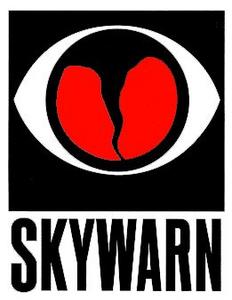 Shelby County ARES was contacted by served agencies and put on standby to assist with possible shelter duty. In Madison, Rockcastle, and Laurel counties, the Red Cross asked for assistance after the Interstate 75 closing.
Shelby County ARES was contacted by served agencies and put on standby to assist with possible shelter duty. In Madison, Rockcastle, and Laurel counties, the Red Cross asked for assistance after the Interstate 75 closing.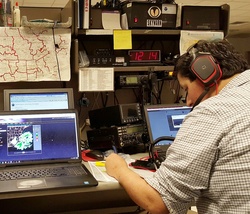
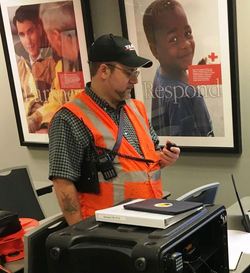
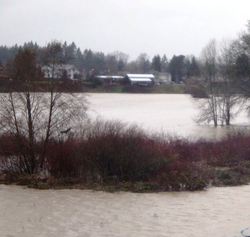
.jpg)
.jpg)
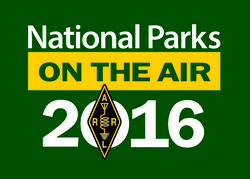 NPOTA activations of smaller or urban units will pose significant challenges for both the Activator and the NPS staff on site. If you're planning an activation of a small NPS site for NPOTA, you must reach out to the NPS unit's Centennial Coordinator far in advance for advice on how a NPOTA activation might be successfully staged from that unit. Work together to address any concerns long before you activate, and your chance of success and good relations with NPS staff will increase.
NPOTA activations of smaller or urban units will pose significant challenges for both the Activator and the NPS staff on site. If you're planning an activation of a small NPS site for NPOTA, you must reach out to the NPS unit's Centennial Coordinator far in advance for advice on how a NPOTA activation might be successfully staged from that unit. Work together to address any concerns long before you activate, and your chance of success and good relations with NPS staff will increase.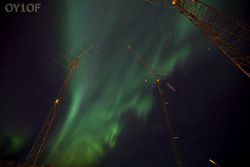
 "Since early this morning, we have been experiencing blizzard-like conditions with strong winds and heavy snowfall," DXpedition Co-Leader Paul Ewing, N6PSE, said on January 24. "Some of our antennas have become damaged by the high winds, and the snowfall is making access to them very difficult. It is also increasingly difficult to refuel our generators." The group managed to recover, repair its antennas, and return to the air, however, and the VP8STI operators soldiered on despite the adverse conditions.
"Since early this morning, we have been experiencing blizzard-like conditions with strong winds and heavy snowfall," DXpedition Co-Leader Paul Ewing, N6PSE, said on January 24. "Some of our antennas have become damaged by the high winds, and the snowfall is making access to them very difficult. It is also increasingly difficult to refuel our generators." The group managed to recover, repair its antennas, and return to the air, however, and the VP8STI operators soldiered on despite the adverse conditions.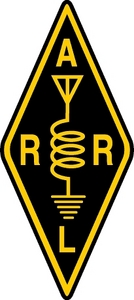 ARRL Network Maintenance Set for January 30: The ARRL IT Department will conduct overnight maintenance on its network Saturday, January 30, to improve reliability and security. The work will occur between 8 PM EST on Saturday, January 30, and 6 AM EST on Sunday, January 31. (January 31, from 0100 UTC until 1100 UTC). During this period, some or all systems may be temporarily unavailable. The website will remain up, but online purchasing will not be available. E-mail will also be offline, but all messages will be queued for later delivery. We apologize for any inconvenience.
ARRL Network Maintenance Set for January 30: The ARRL IT Department will conduct overnight maintenance on its network Saturday, January 30, to improve reliability and security. The work will occur between 8 PM EST on Saturday, January 30, and 6 AM EST on Sunday, January 31. (January 31, from 0100 UTC until 1100 UTC). During this period, some or all systems may be temporarily unavailable. The website will remain up, but online purchasing will not be available. E-mail will also be offline, but all messages will be queued for later delivery. We apologize for any inconvenience. Deadline is February 1 to Submit Nominations for Dayton Hamvention 2016 Awards: Monday, February 1, is the deadline for
Deadline is February 1 to Submit Nominations for Dayton Hamvention 2016 Awards: Monday, February 1, is the deadline for 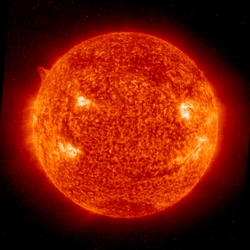 Predicted solar flux for the short term is 115, 112, and 115 on January 28-30; 112 on January 31-February 1; 118 on February 2-3; 112 on February 4; 100 on February 5-6; 105 on February 7-11; 110 on February 12-13; 105 on February 14-15, and 100 on February 16-20.
Predicted solar flux for the short term is 115, 112, and 115 on January 28-30; 112 on January 31-February 1; 118 on February 2-3; 112 on February 4; 100 on February 5-6; 105 on February 7-11; 110 on February 12-13; 105 on February 14-15, and 100 on February 16-20.








